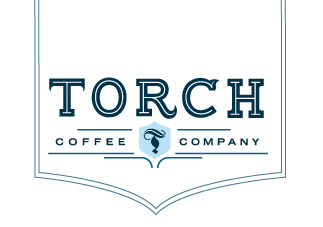Q ROBUSTA GRADER TEST DESCRIPTIONS
1. General Coffee Knowledge Test (1 Test)
The General Coffee Knowledge exam is the only written test in the Q Grader course, which consists of 100 multiple choice questions about coffee cultivation, harvesting, processing, cupping, grading, roasting, and brewing. Candidates have 60 minutes to complete the test with 75% accuracy as the passing score.
2. Sensory Skills Test (3 Tests)
The Sensory Skills Test sets a baseline standard for taste acuity. Candidates are tested on their ability to identify three varying intensities of salty, sour, and sweet odorless solutions. The test is divided into three parts:
Part I: Reference (Passing Score: 100%)
Candidates rank the intensity of each base solution presorted by taste group;
Part II: Blind identification (Passing Score: 80%)
Candidates identify the intensity and taste group of each unsorted base solution in a blind test;
Part III: Mixture set (Passing Score 70%)
Candidates identify the intensity and taste group of the two base solutions in the mixed samples.
3. Olfactory Skills Test (4 Tests)
The Olfactory Skills Test evaluates a candidate’s ability to recognize 36 common aromatic scents using the Lenoir Le Nez de Café vial kit. There are four tests with 30 minutes each, and a passing score of 75%, whereby candidates have to match six among nine blind pairs, then identify three specified vials of scents for each of four groups:
- Enzymatic: scents originating from cultivation and processing;
- Sugar browning: scents originating from earlier stages of roasting;
- Dry distillation: scents originating from the later stages of roasting;
- Aromatic taints: scents resulting from storage, handling and processing errors.
4. Cupping Skills Test (4 Tests)
The Cupping Skills Test requires candidates to grade coffees using the Q Cupping Form, which is a set of criteria used to officially grade coffee qualities. There are four tests with 60 minutes each, and a passing score of 80%, whereby candidates are scored based on accuracy and consistency of grading and descriptions. Candidates must grade six different coffee samples from each of the five flights:
- Brazil Robusta
- East African/Ugandan Robusta
- West African Robusta
- Asian/Indonesian Robusta
- Indian Robusta
5. Triangulation Skills Test (4 Tests)
The Triangulation Skills Test refines the sensitivity of candidates in distinguishing minor differences in coffee characteristics, and teaches them the methodology of comparing cups for quality control. The five tests with 45 minutes each, and a passing score of 83%, are conducted in a dark room as the lack of light eliminates any visible differences between the coffee samples. Candidates are presented with six sets of three cups, and have to identify the odd one out.
6. Organic Acids Matching Pairs Exam (1 Test)
The Organic Acids Matching Pairs Exam evaluates candidates on their ability to identify the common acids found in coffee, by naming and matching two of four weak brewed cups of coffee containing those acids, in a total of eight sets. The six primary acid components of coffee include acetic, citric, lactic, malic, phosphoric, and quinic acid. Candidates are allowed 40 minutes for this test which has a passing score of 75 points.
7. Robusta Green Coffee Grading Test (3 Tests)
The Robusta Green Coffee Grading Test requires candidates to identify the defects and calculate the adjusted defect count from each of the three 350g green coffee samples provided, before labeling them as “Fine Robusta”, “Premium Robusta”, or “Off-Grade Robusta” based on the UCDA green grading protocols. Candidates are allowed 20 minutes for each of the three samples and must have at least two samples graded correctly in order to pass. The exam is an open book whereby candidates are welcome to use supporting materials as reference.
8. Robusta Roasted Coffee Grading Test (1 Test)
The Robusta Roasted Coffee Grading Test is similar to the Robusta Green Coffee Grading Test. Candidates are required to identify the number of roast defects in the form of quakers (underdeveloped beans that were not roasted properly) found in one 100g roasted coffee sample, before labelling them as “Fine Robusta”, “Premium Robusta”, or “Off-Grade Robusta” based on the UCDA green grading protocols. This is also an open book exam, whereby candidates are allowed 15 minutes and must have a passing score of 100%.
9. Sample Roast Identification Test (1 Test)
The Sample Roast Identification Test measures candidates’ knowledge of UCDA Robusta cupping protocol roasting instructions. Candidates have to utilize their sense of taste and smell to evaluate four trays of brewed coffee samples and determine which one meets the Robusta cupping protocol specifications under red light. The four unacceptable samples include under roasted, over roasted, baked (long roast), and underdeveloped (short roast). The time for this test is 60 minutes and the passing score is 75 points.
